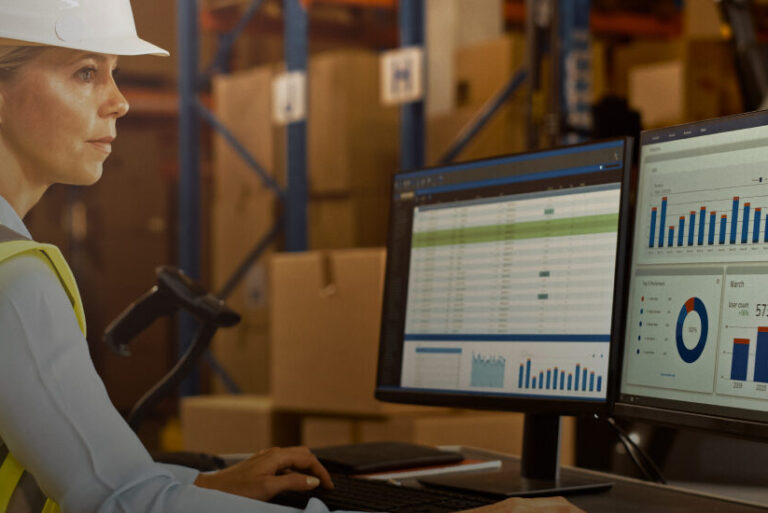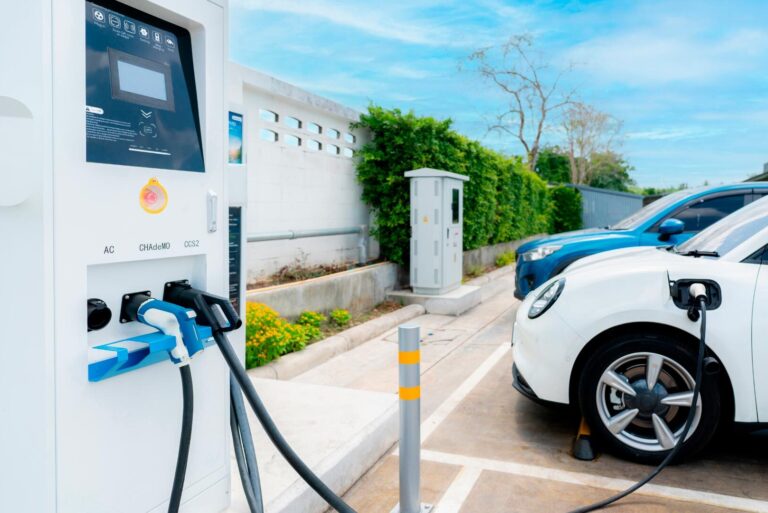Oregon CFP Services
Rebates for EV fleets through Oregon’s Clean Fuels Program

Earning Rebates through Oregon’s Clean Fuels Program
The Oregon Clean Fuels Program is a regulatory initiative aimed at reducing greenhouse gas emissions from transportation fuels in Oregon. By incentivizing the use of low carbon intensity (CI) fuels like electricity, the program provides opportunities for electric vehicle (EV) charger and fleet owners to earn credits.
By opting into Oregon’s CFP, EV fleet owners can earn energy rebate credits for each metric ton of carbon equivalent (MTCO2e) emissions avoided through the use of electricity-powered vehicles. Discover how you can unlock financial benefits for your fleet.
Eligibility
EV fleet owners in Oregon can actively participate in the Clean Fuels Program to earn additional revenue through energy credits.
Entities eligible for earning energy credits on reduced emissions include:
- Electric vehicle service providers (EVSP)
- Electric vehicle (EV) fleet charger owners and operators, including buses and trucks
- Electric vehicle forklift and transportation refrigeration unit (TRU) fleet owners
What types of vehicles are eligible to earn CFP credits?
The following types of electric vehicles are eligible to earn credits in Oregon. If you’re unsure whether your vehicle qualifies, contact us today.
- Electric / Hydrogen Forklift Trucks GSE
- Battery-powered Material Handling Equipment (MHE)
- Electric Transportation Refrigeration Units (eTRUs)
- Electric Trucks - All Classes
- Electric Buses and Shuttles
Am I required to opt into the program?
Fuel providers who meet certain thresholds are obligated to comply with the program requirements. Voluntary participants, such as EV fleet owners, are not obligated to opt into the program. However, by not participating, you would miss out on the rebates you could otherwise earn.
If I only have one electric vehicle, am I still eligible?
Yes! Businesses of any size in Oregon are encouraged to enroll with Smart Charging Technologies. You can earn monetary rebates regardless of the size of your fleet.
Application
Oregon-based EV charger and fleet owners can apply to the CFP with Smart Charging Technologies at no out-of-pocket cost. We will handle the application and enrollment process for you.
Our enrollment process includes a no-cost in-person site audit, ensuring a comprehensive and accurate estimate of your rebate earnings. Unlike other credit aggregators that require you to complete the paperwork yourself, our on-site audits take care of all the necessary paperwork and help you avoid the risk of misrepresented assets and potential fines.

How can my company enroll in Smart Rebates™?
Companies interested in Smart Rebates™ must complete any required paperwork by the Oregon Department of Environmental Quality (DEQ) and opt into our program by signing the Participation Agreement. We will then survey your site to assess and collect data on your forklift trucks, MHE, transportation fleet, and charging infrastructure. Once your company is deemed eligible for Smart Rebates™, you’re only required to provide us with quarterly changes to your fleet.
I’ve already enrolled in the Oregon CFP. Can I still switch to Smart Rebates™?
Yes. We can perform an in-person audit to estimate your potential earnings with Smart Rebates™ and ensure you receive the maximum value for your credits.
How long does the application process typically take?
When you enroll with Smart Rebates™, we will conduct an on-site audit to estimate your earnings and begin the application process immediately. You'll receive your first rebate check 45 days after the end of the first reporting quarter and subsequent checks every 90 days.
Reselling
Electric charger and forklift owners in Oregon earn CFP credits for every metric ton of CO2 equivalent (CO2e) emissions avoided. These credits can be sold on the market to fuel producers seeking to offset their emissions.
As a credit aggregator, Smart Charging Technologies manages the trading process, ensuring you earn the highest reward for your aggregated CFP credits. With our longstanding relationships with fuel producers in Oregon, we can help you secure the best prices for your credits.
What kind of rebates can I expect to earn every quarter?
The value of rebates earned under the Clean Fuels Program varies based on the supply and demand dynamics of the credit market, as well as the type and quantity of electric vehicle equipment used. When you enroll with Smart Charging Technologies, we will conduct a no-cost on-site audit to estimate your quarterly earnings. Get in touch with us to start the audit process.
How long can I expect to receive rebates?
The Clean Fuels Program is currently planned to remain active until 2035; however, the program may be extended to further reduce carbon emissions in Oregon.
Rebates
Oregon CFP rebates are earned on a quarterly basis calculated by the quantity and type of EVs, as well as the supply-and-demand market of energy credit trading.
You’ll receive quarterly checks that reflect the value of your CFP credits, which you can apply to any business expenses, including offsetting the cost of your EVs or buying additional vehicles to earn more credits.

What’s the catch?
There is no catch! The Oregon CFP program was designed to incentivize businesses to reduce their carbon emissions and award investments in cleaner technologies.
When can I expect my first rebate check?
You’ll receive your first check 45 days after the end of the first reporting quarter.
Reporting
Fleet owners participating in the Oregon Clean Fuels Program are required to adhere to reporting and record-keeping obligations quarterly. With Smart Rebates™, we do all the reporting for you, taking the burden and liability off your plate.
Quarterly reports must be uploaded and submitted to Oregon’s Department of Environmental Quality (DEQ) no later than 90 days after the end of the quarter. Annual reports must also be submitted by the following deadlines:
- Annual Fuel Pathway Reports due March 31
- Annual Compliance Reports due April 30
- Verification Statements due August 31
Meeting these deadlines can be time-intensive and subject to fines in the event of a misreport. By enrolling with Smart Rebates™, you don’t have to worry about missing important reporting deadlines – we’ll take care of that for you at no out-of-pocket cost.
What type of data is being collected and reported to the Oregon DEQ?
Smart Rebates™ only requires your company to provide SCT or our service providers with access to your site and equipment usage data.
What happens if my site changes or if I purchase new EVs?
We’ll perform a no-cost in-person audit to alleviate the burden and compliance risks associated with reporting by accurately capturing relevant site and equipment usage.
What happens if I report inaccurate data?
Inaccurate or incomplete reporting may result in fines from the Oregon DEQ. Our in-person audit relieves the burden of liability and risks associated with self-reporting.
Get More Information
What to Expect
Whe you enroll in Smart Rebates™, we’ll perform an in-person audit to give you an estimate of your earnings and ensure accurate reporting. We’ll handle the application, reselling, and reporting processes at no cost to you.
As a fleet owner, you’ll be able to earn additional revenue from your EVs, at no cost and with no risk of fines or inaccurate data readings. Learn more about Smart Rebates™ for EV fleet owners
Recent Updates in Oregon
Smart Charging Technologies to Unveil the Next Generation of Telematics System Solutions at ProMat 2025 - Smart Charging Technologies (SCT) is redefining motive power fleet telematics with cellular-powered tracking and monitoring solutions designed for… Read more >
Maximizing Uptime on a Budget: Compete with Industry Leaders - When you think of industry giants managing sprawling fleets with ease, it’s hard not to feel a bit… Read more >
The Advanced Clean Cars II Rules: Oregon and Washington Following California's Lead in Zero-Emission Vehicles - In recent years, California has implemented incentives and regulations to push the adoption of clean fuels. Now, Oregon… Read more >



